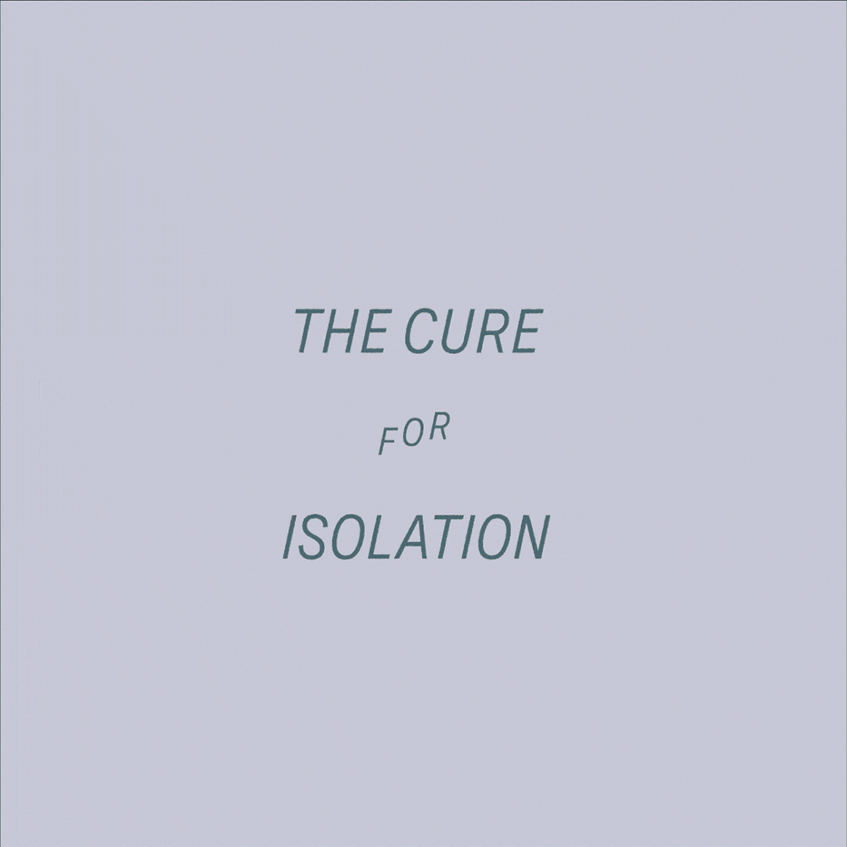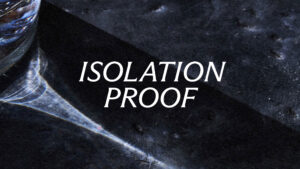
In Conversation w. Jake Sherry
In Conversation with Jake Sherry of Isolation Proof
Athletics welcomes you to In Conversation, our series of discussions with colleagues and friends of the studio.
We’re joined by Jake Sherry, founder and distiller at Isolation Proof, a small batch distillery focusing on cultivating a sustainable no-nonsense, spirit-forward cross between a London Dry and New American style gin using refreshing and colorful seasonal ingredients. Jake chats with us about his background in film, how he discovered his love for small batch distilling, and the ways Isolation Proof is constantly evolving as a brand that is deeply inspired by the magic of the Western Catskills.
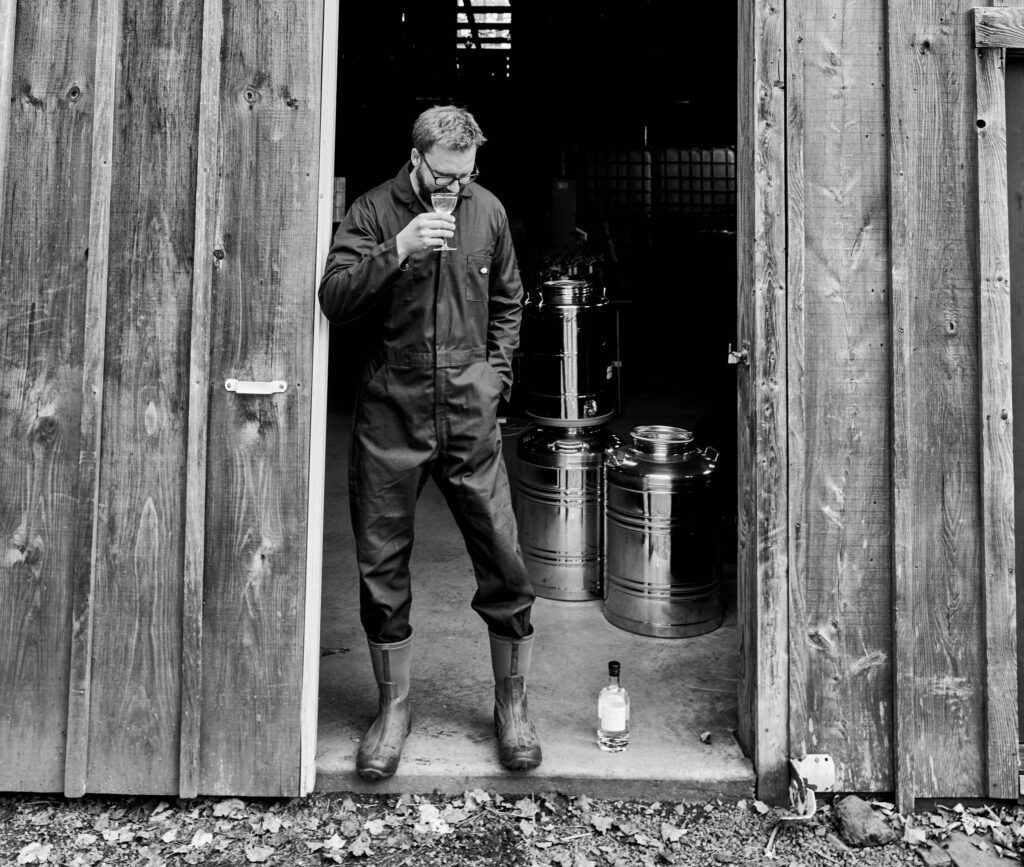
Jake, thank you for doing this and thanks for having Athletics develop the Isolation Proof brand. We love what you do and know you have been very busy over the last few years. Tell us a little bit about yourself and your background, and how you got into small batch distilling.
Jake: I do not come from a hospitality industry background, which is what I’m in now. So I came to distilling a bit sideways. I grew up in New Orleans which was a super cool cultural upbringing. It’s the best city on Earth, or one of them, as far as I’m concerned. We still do crawfish boils and Fedex crawfish up here and from Louisiana. I kind of slowly made my way up north after college in the Midwest and what brought me to New York was the fact that it’s the other coolest city in the world. It just felt like the center of the universe to a 20-something.
The other reason I moved here was for the advertising and film production industry, which was my career before moving into distilling. I directed commercials with the goal of one day making films. At some point in my early thirties I realized that making films is a hell of a lot of work and I had all these other interests I wanted to pursue. At that point I realized that directing was really a job and I didn’t want to direct commercials for the rest of my life, as fun as it could be. So I started thinking about my next move and that coincided with my purchasing property up in the Catskills. As a kid, I had spent summers in the Adirondacks. My parents are both academics, and so in the summertime we were lucky enough to travel. Being up in the Catskills, I’ve rediscovered my love of nature and the woods, and getting away from the concrete jungle. The wheel started turning, and I was like, how can I be here way more of the time, and spend less time in front of my computer in the city?
Athletics: So you ended up buying a place in the Catskills
Jake: We had purchased this property up here with this big wooden barn, and at some point I thought, what if I start a distillery in the barn — having no idea how to run a business, or how to distill, or what any of those things even meant. But it sounded really cool! What I’ve come to realize since then is that this distilling perfectly combines a lot of interests that I have. I really liked working with my hands. I loved the idea of making a physical product that people could touch and taste and smell. Something tangible you could hold in your hands. I think so much of life these days is digital, that it’s really nice when you have a tangible product to hold on to, so that intrigued me. I’ve always loved cooking and flavor profiles, and I had an interest in gardening and agriculture. And so combined all of those things into one business, or industry, if you will. Plus, I like cocktails, and there was a certain cool factor to it too. It started as a nice weekend hobby, with a close friend of mine at the time, and then we said, “Hey, what if we teach ourselves to distill? We have the space in the barn? Let’s give it a shot!” And so, we got our licenses so we weren’t moonshining. If you’re ever caught in moonshining, you’re barred from distilling for life so we got about it in the right way.
We started teaching ourselves by going down the internet rabbit hole and reading a lot of books and going and visiting other distillers and spending time with them. I remember walking into the first distillery to take a weekend distillery class, and just immediately being like “This is the coolest place I’ve ever been. I want to do this!” And it kind of evolved from there. It turned into a business from a hobby. When the pandemic hit in 2020, and all of my production work ground to an immediate halt, I just dove into this project starting a distillery. We already had some recipes and some ideas of what we were doing. And so I just said, “let’s see how fast we can get a gin to market!” Because I was up in the Catskills with all this time and no day job, I came up with the name Isolation Proof over a weekend. It was then a nod to the pandemic and I just ran with it.
Athletics: That’s amazing. Give us a sense of what you learned from 2020 to now. Give us a snapshot of the last 3 years. What led you to today?
Jake: It’s really been day-to-day. I never felt confident enough in my skillset as an entrepreneur to have a really formalized business plan and go after big money investment. That didn’t feel right. What felt right was growing organically, day after day, and letting the business kind of dictate where we went. We’re still doing that, and I don’t know whether that’s the right way to grow! This is definitely not the most efficient way, but it has felt right.
When we really started, the first thing we ever put in bottles was gin that was like 160 proof. It was really really strong gin that we put in spray bottles that you could use as hand sanitizer. But it was also edible so you could spray it in your mouth and spray it on your hands, and this is at the height of the pandemic.
I think from there I quickly realized that hand sanitizer, while it was an immediate need then, was not the future of what I wanted to make. And so we started making a gin that was just meant for drinking. And then we started diving into the world of other gins to see how far we could push the category. I settled on gin from the beginning, because, unlike whiskeys, it didn’t take years to mature. But also, there was a tremendous amount of creativity within the category. Gin has to have juniper by definition, but beyond that, the sky’s the limit in terms of what you put in it and what it tastes like, because it’s such a broad definition. That was really interesting and allowed all this creativity.
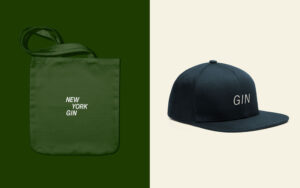
Athletics: Curious to know how you arrived at your flavor profiles
Jake: Me and my partners, Joe Kozlinski and Tara Hammond regularly ask ourselves, how far can we push this? Can we make a gin with mushrooms? Can we make a gin with rhubarb? Can we make a gin with apples? What ingredients do we have around here? What in the Catskills can we use to make all these different gins? We’re definitely rooted in the region. We’ve now evolved as a company to make all of these seasonal gins and we also have these rotating, limited release gins that will come out with each season. Those limited releases each started from a core ingredient that was growing up here near the distillery at any given time, and then we collaboratively developed the recipes as a team. In the summertime, rhubarb is in abundance up here, so we wanted to make a gin with the rhubarb. We came up with this pink rhubarb, hibiscus, and grapefruit peel gin that’s really delicious. And in the springtime wild ramps pop up in the woods. They’re one of the first plants that grow. It’s an unusual thing to use in a gin, let alone spirits in general. We said “Let’s make it, a wild ramp gin! That’s a great challenge!” And in the winter and fall: apples. Using apples as the base to make a clear spirit that’s as sippable as a whiskey. Something that you can put over ice and sit around the fire in the fall.
Athletics: The Catskills is such a unique region. They harken back to your childhood in the Adirondacks but are a weird magical all their own. Tell us a little bit of your take on the Catskills right now, especially as a small business owner up there.
Jake:
Yeah, it’s a great question. I mean, I remember a professor years ago gave me advice, and he said “Figure out where you want to live and then figure out how to work in that place.” I didn’t think about that for a long time, but now that resonates with me constantly, because for me, starting a business here was really an excuse to spend more time in the western Catskills. It is such a beautiful place, and it just felt really really great to be here. To some extent, starting the distillery was to facilitate me having more time up here in this place that I love. And now that ties into the branding of the company. I don’t know if we’ve completely captured this yet, but my goal is to figure out how to bottle the Catskills into each bottle of gin we make, and then take that to people wherever they are around the world.
And that idea, how can we communicate the magic of being up here that I feel every day through our product. So that’s where we are today. That being said, I think the Catskills is a hard place to have a consumer-facing business. I really wrestled with where the right place to have distillery headquarters was. The obvious answer would seem to be in New York City, not on some state highway in the middle of nowhere. We’d have a lot more foot traffic in the city. But I’m trying to stay north. I started the company to spend more time here and let’s bring people up here and experience a piece of that, even if we get fewer people.
Athletics: Having worked on the brand, I think Malcolm and the team were very aware of that. How do you feel about the brand as it exists now? Do you feel like it’s where you want Isolation Proof to be or are there more ideas for building it?
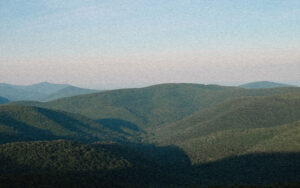
Jake: I kind of think about the brand like I think about the gins, in the sense that they’re ever-evolving. I think maybe it’s a strength and a weakness that I have, that I’m never quite satisfied. And so I’m always kind of trying to see how we can make our products better, and I definitely think about the brand the same way.
It’s like improv comedy and theater: the moment you say “it’s good,” you stop evolving. One thing that we did with the gin from the beginning was release it to market really early, almost as a beta-type gin. Then we kept making it better, but I don’t think it changed enough with each iteration that people really noticed, but I think if you tasted the first gin we put on shelves versus the gin on shelves now, you’ll know it’s a lot better. We keep tweaking and evolving the recipe to this day. I’ll add a little bit of cardamom, I’ll add less of this botanical, or do something here, just out of curiosity. Kind of chasing the dream of perfecting the gin.
I think the brand is similar in that. As we evolve as a company and grow we’ll keep changing the brand and adjusting it slightly. So again, I don’t know if that’s the right way, but that’s just the way I know how.
Athletics: That makes complete sense. It’s an organic and intuitive business, it evolves naturally and it can’t be static.
Jake: You have anchored products that are sort of the meat and potatoes that make it a little boring sometimes. It’s like you want it to always be exciting. During a stressful time I woke up in the middle of the night at 2AM, couldn’t get back to sleep, and this idea popped into my head. What if we did wildflowers on one of our bottles and did it as an illustration? We found an artist up here and she drew it for us, and it’s a super cool drawing. But now I’m like, I want to put that on the side of a building. I want to put on T-shirts. What can we do with it? And so I think we’ll keep exploring and doing little brand explorations like that. And as things click, we’ll just follow those and chase them down.

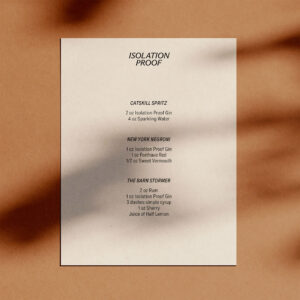
Athletics: What is up next for Isolation Proof? Any secret batches on the horizon? Just Curious to see what your next releases are going to be if you have anything you want to share.
Jake Sherry: We’re about to launch this year’s summer gin, which I mentioned earlier, which has all this local rhubarb and hibiscus (which isn’t local), but does color the gin this very cool pink color. So we’re bottling that as we speak. I just did some of the first deliveries today, and our team in the city is doing deliveries as well. That’s the release that I’m always excited about because it has such shelf appeal because of the color. But then I think it’s backed up by the taste, and it’s really fun. You can mix it in any classic gin cocktail, and it just turns it this beautiful shade of pale pink and adds so many different dimensions. So that’s a pretty fun one.
After that, I don’t know what we’ll do next. I want to make more mushroom gins. That was another really weird but fun release. I’m trying not to plan too far ahead. And again, just keep letting it evolve naturally and see where it goes.
Athletics: Amazng. For us, you’re a testament to entrepreneurship, and a great idea, and being able to be very disciplined in your work in making something awesome, but also very curious. I think that really aligns with what we’re all about as an agency.
Jake Cherry: Yeah, totally, and that’s why it was fun with you guys, Malcolm, and the team. I think Malcolm had a sense of the same kind of magic that I feel up here in the Catskills, and was able to capture some of that in the brand identity. But also just had the playfulness and willingness to explore, which is very aligned with what we do. It was super fun.
